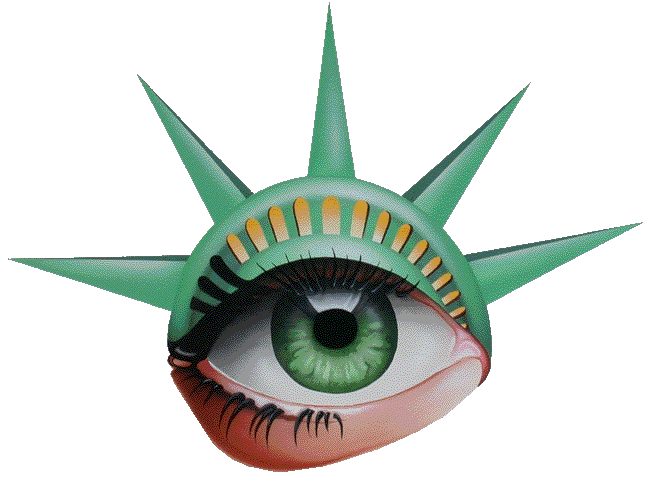why do blind people wear glasses? Let’s Unpack the Surprising Truth
Hey there, fellow curious minds! Ever wondered why someone who’s blind might still rock a pair of Glasses? Is it just a fashion flex? A medical must-have? Or maybe a secret superhero disguise? Spoiler: It’s not just about looking sharp (though let’s be real—Glasses do add a certain je ne sais quoi). We’re diving into the real reasons, mixing facts with a dash of wit, and hey—we’ll even toss in some insider tips from our team at Liberty Laser Eye Center in Vienna, Virginia. Ready? Let’s go.
“But Wait… Can’t They See?” Breaking Down the Basics
First off, let’s clear up a common myth: not all blindness is the same. Some folks have partial vision, light perception, or even total blindness. glasses might seem pointless for someone who can’t see, but trust us—there’s logic here.
Here’s the lowdown:
- Protection: Eyes are delicate, even if vision isn’t 20/20. glasses shield against dust, wind, or that rogue toddler’s sticky fingers at the grocery store.
- Medical reasons: Conditions like keratoconus (a thinning cornea) or light sensitivity might require specialized lenses.
- Habit or comfort: Imagine wearing Glasses for decades, then losing your sight. Taking them off could feel… weird.
- Social norms: Let’s face it—Glasses signal “eyes” to others, reducing awkward stares or assumptions.
And hey, if you’re squinting at your screen right now (cough nearsightedness cough), maybe it’s time for an annual eye exam? Just saying.
glasses as Armor: Protection First, Fashion Second
Shielding Those Peepers
Even without full vision, eyes are vulnerable. Think UV rays, debris, or accidental pokes. Polarized lenses or shatterproof frames? Total game-changers. For folks with light perception, tinted lenses can reduce glare—like built-in sunglasses.
Pro tip: If you’re exploring laser eye surgery options like LASIK or Advanced PRK, our team at Liberty Laser Eye Center uses Wavefront Analysis to map your eyes with NASA-level precision. No capes Needed.
Medical Must-Haves
Some conditions demand specs:
- Keratoconus: Bulging corneas? Corneal cross-linking can stabilize them, but glasses or scleral lenses often help.
- Dry eye syndrome: Special moisture-locking frames? Yes, please.
- Post-surgery care: After Topography-Guided LASIK, protective glasses prevent rubbing.
FYI, if you’re in Washington DC and Googling “dry eye treatment near me,” we’re just a quick drive from the city. Wink.
“But Do They Need glasses?” Tackling Misconceptions
Let’s get sassy for a sec. “Why wear glasses if you’re blind?” is like asking, “Why own an umbrella if you hate rain?” It’s practical, folks!
Myth busters edition:
- Myth: All blind people see nothing.
Truth: Many have residual vision. Glasses might sharpen light/shadow perception. - Myth: Blindness = no eye care.
Truth: Routine checks prevent issues like glaucoma. Annual eye exams save lives, people! - Myth: Surgery can “fix” blindness.
Truth: For conditions like presbyopia or astigmatism, PresbyLASIK or laser eye surgery can help—but it’s case-by-case.
How Liberty Laser Eye Center Fits Into the Story
Okay, time for a humble brag. At our clinic in Vienna, VA, we’re all about precision, safety, and not making you sell a kidney to afford care. Whether you’re researching LASIK recovery times or need Corneal Cross-Linking for keratoconus, we’ve got your back (and your corneas).
Why choose us?
- Best LASIK surgeons in Washington DC? Our reviews speak for themselves.
- Affordable options without skimping on tech.
- Free consultations because adulting is expensive enough.
Searching for “nearest LASIK doctors” or “best LASIK surgeon near me”? We’re your guys.
Eye Surgery Types: A Quick Cheat Sheet
Not all lasers are created equal. Here’s the skinny:
| Procedure | Best For | Recovery Time |
|---|---|---|
| LASIK | Nearsightedness, Astigmatism | 1-2 days |
| Advanced PRK | Thin corneas, High prescriptions | 5-7 days |
| PresbyLASIK | Presbyopia (aging eyes) | 3-4 days |
| Corneal Cross-Linking | Keratoconus | 1-2 weeks |
Your Burning Questions, Answered
1. “Can glasses restore vision for blind people?”
Nope. But they can protect, enhance light perception, or correct coexisting issues (like farsightedness).
2. “Is LASIK safe for someone with partial blindness?”
Depends on the cause. Book a consult—we’ll give it to you straight.
3. “What’s the success rate of LASIK?”
Over 96%! But we screen rigorously to keep it that high.
4. “Why are eye exams yearly?”
Catch issues early. Glaucoma? Diabetic retinopathy? Sneaky little devils.
Final Thoughts: Eyes Wide Open
So, why do blind people wear glasses? Protection, comfort, medical needs—and yeah, maybe a touch of style. Whether you’re battling nearsightedness or just Googling “eye surgery types near me,” remember: Your eyes deserve VIP treatment.
And hey, if you’re in Washington DC or Vienna, VA, swing by Liberty Laser Eye Center. We’ll hook you up with laser eye surgery, dry eye treatments, or just a friendly chat about corneal topography. Because seeing clearly? Priceless.
Ready to ditch the specs? Contact us today. No robots, no jargon—just real talk from Virginia’s best LASIK surgeons. See ya soon! 😎
(P.S. Yes, we used an emoticon. Judge us.)

